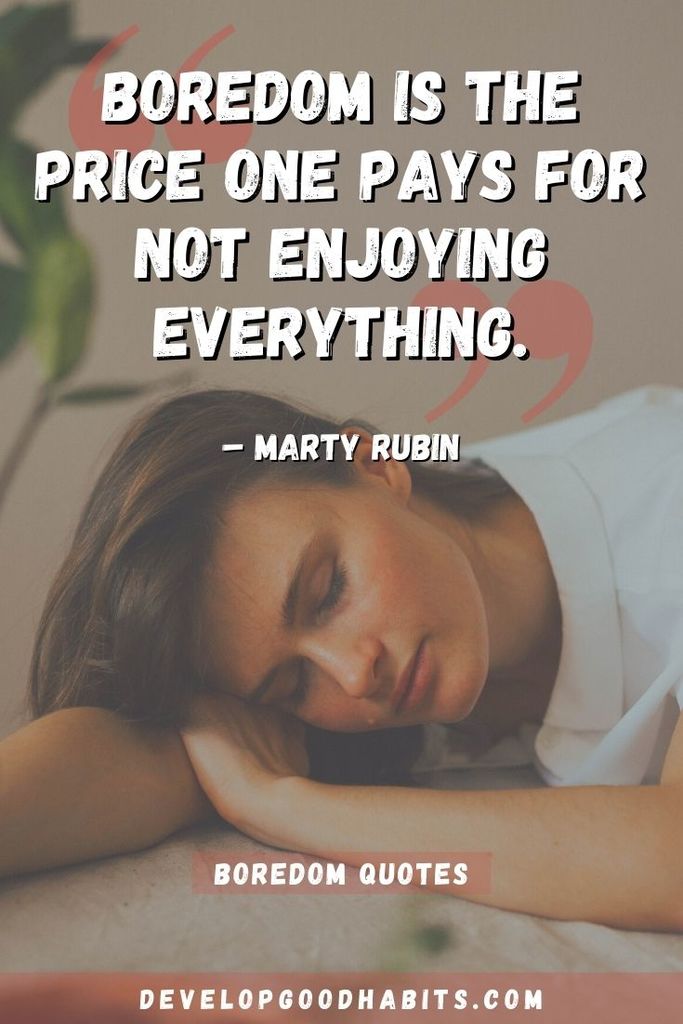There are some job interview questions that we all cringe at the thought of answering, even though we know they’re coming.
From explaining your weaknesses to recounting a time that you did not get along with a coworker, some interview questions can be daunting.
However, in order to land that perfect job, you have to refine and perfect your interviewing skills, even if that means downplaying some seriously negative things from your past.
Steer the conversation toward the positive aspects of your experiences that have ultimately lead you to this interview.
In anticipation of being asked to explain your reasons for leaving a job, are you prepared with an answer that doesn’t put you or your former employer in a bad light?
When I am answering this question in an interview, I make sure to convey three things to the team.
First, leaving the job was beneficial to my long-term career.
Second, I left on good terms.
And third, my work values currently align with their company’s mission.
When you factor these elements into your answer, you will show the prospective employer that you’re a forward thinker who wants to advance in your career. Keep your answer to this question short and positive, yet honest.
In this article, we will look at 11 solid answers to an interviewer’s inquiry as to why you left your last position. These answers will not make interviewers wonder if there is more to the story or if you’re going to up and leave that job like you did your last.
Whether you left a job under unique circumstances that you don’t want to explain, or you’re just not sure how to tell a potential employer that your current job is extremely boring, we’re here to help you out.
Let’s look at some safe examples of reasons for leaving a job.
1. You’re currently employed and this position arose unexpectedly.
You may not have been planning to leave your current position until you came across another opportunity that piqued your interest.
The good thing about being in this situation is that there is no real pressure on getting the job because you’re already employed and have a steady paycheck coming in.
Also, it is often easier to find a job when you already have a job. This is because hiring managers can see that another company is already valuing your work, which sends a positive message.
EXAMPLE: “I wasn’t actively looking for opportunities to leave my current position, but a past colleague brought this job opening to my attention.
After researching your organization and this position, I was excited about how closely my qualifications fit with what you’re looking for in a candidate.
While I enjoy my current job at ABC Company, I feel that there are more opportunities for leadership roles at your organization, which is ultimately where I would like to aim my focus.”
This is a good answer because it’s flattering for the company to hear that you’re willing to leave your stable and comfortable job to take a chance with them.
Also, you’re making it clear that it was their specific job opening that turned your attention to the job market.
2. You needed an opportunity to grow.
Sometimes an interviewer will ask you why you left several of your past jobs to see if they can sense a pattern.
However, all employers will understand your need to progress in your career and gain some well-rounded experience from different types of companies, so don’t feel bad communicating to them that it was simply time to move on.
EXAMPLE: “I had been in that position for several years and felt I had no more room to grow within the organization. I accepted a position with a larger company that not only allowed me to have more responsibility but also offered me some upward mobility.”
This answer shows that you’re not only willing to take on more responsibilities, but you’re also aiming to continue to be successful and progress in a long-term career.
3. You got fired.
Talking to your interviewers about your involuntary termination from a previous employer sounds daunting. However, there are a few things to keep in mind to help lighten this load.

One of the reasons why people leave their jobs is that they got fired from their previous job.
Aside from the fact that 91% of people who get fired go on to land a position that is either equal to or better than their last, there is evidence that getting fired can make you a better employee moving forward because you have probably learned from your mistakes.
Hiring managers can see the resilience in a candidate who has gotten knocked down in the past and is ready to get back up.
Show your interviewers that you’re willing to be upfront and honest by addressing this situation before the question is even asked. By being transparent, you’re showing them that they can trust you.
And while you don't want to alter the truth regarding the details surrounding your termination, you also don’t need to be honest to a fault.
Acknowledge what happened, and then give your interviewer some context that doesn’t seem biased. You don’t want to leave large gaps in your story for them to fill in the blanks and make assumptions, however, you also don’t want to highlight one of your weaknesses that ended in disaster.
EXAMPLE: “A new senior manager came on board who had a vastly different vision for the future of the company from the path we were on.
Because my unique skill set was not a good fit for the direction the company was heading, the manager felt that it would be better to bring in a new team member. However, from what I’ve seen so far in your organization, I feel like I would be an excellent fit.”
If you can say something like this before the issue is even brought up, you will be ahead of the game. Not only are you referencing a difference between your manager and you that puts neither of you at fault, but you’re also ensuring them that your skills do align with their mission.
With this question, in particular, you will want to be prepared with an answer to a follow-up question, such as, “What would your supervisor say about the circumstances of your leaving?” This is one reason why you really need to be honest in your reasoning for being fired.
Hopefully, before you left the job from which you were fired, you spoke with HR about their policies for when a reference check comes in on an employee who was fired.
They may only confirm the dates that you worked there, in which case, you have a little wiggle room for this follow-up question. But regardless, keep it short, positive, and a bit vague.
EXAMPLE: “I’m sure they would agree that there are no hard feelings and they are optimistic about the future of my career.”
4. You were bored.
If you spent every Sunday night dreading the 40 hours that were lying ahead of you because it felt like twice that, it’s no wonder you wanted to leave the position.
However, telling a prospective employer that you were bored out of your mind will not only make it seem like you’re speaking poorly about your previous employer, it will also show them that you didn’t gain much from the experience and may have been pretty idle for the past few years.
EXAMPLE: “I didn’t have many opportunities to use some of the professional skills that I had really mastered at that point in my career.
I felt I needed to move on to a position that would not only allow me to draw from a variety of my experiences but would also offer me a greater challenge.”
Be sure to not make it sound like the job was beneath you or you were ungrateful for being employed. Just make it clear that you felt you were capable of doing more, and they will probably be able to pick up on what you’re saying without you having to actually say it.
Chances are, your interviewer has endured a boring job too. But your ability to put a positive spin on it will impress them.
5. You made a career shift.
People change their career paths all the time, so this is completely acceptable. The important thing here is to bring up the transferable skills that you gained from your experiences in your first career and how you plan on applying them to this new position.
EXAMPLE: “I got to the point in my marketing career where I felt it was no longer fulfilling and I wanted to use my talents in a way that could help people more directly.
That being said, my experience working with people from all different backgrounds has prepared me to effectively work with diverse clients and have the necessary cultural humility to succeed in this position.”
In our increasingly diverse workforce, it is essential that you can work with people who come from all types of different backgrounds.
But adding in terms that are extremely relevant and universal across all professional fields such as “cultural humility” will allow your interviewers to feel an immediate connection with you.
6. The job wasn’t what you expected.
Unfortunately, people do get hired for a position that they think is going to be one thing, but it ends up being something very different than they anticipated.
For example, let’s say you took a job with a large bank with the expectation of offering financial management services and solutions to clients. However, once you got in the role, you realized that the job largely revolved around making cold calls to gain the clients to work within the first place.
EXAMPLE: “I was hired for a role that I expected to be in line with my skills and career goals, but over time I found that the majority of my working hours were expected to be spent on tasks that fit neither my skill set nor my interests.”

Some people who do get hired for a position that they think is going to be one thing, but it ends up different than they anticipated.
This is probably more common than you would expect, so a hiring manager would not be surprised to hear this.
This answer doesn’t throw your former employer under the bus for pulling a bait and switch because you’re using the first person throughout the answer (“my time”, “my skill set”, “my interests”).
This shows that you are willing to make moves to find a position that will be mutually beneficial for you and the company.
7. It’s been several months since you quit your last job without having another one lined up.
First of all, looking for a job can be a full-time job, so it’s tough to work a full 40 hour week and then spend time on top of that researching other positions, applying, networking, and interviewing.
If you have the financial means to do so, you can choose to leave a job in which you see no future and focus all of your time on finding the right fit. However, this can leave a gap in your resume that hiring managers may want you to explain.
EXAMPLE: “I enjoyed my time at ABC Company, but knew that the future that I ultimately wanted to pursue was not an option there.
As they were approaching their busy season, I decided to resign from my position in order to focus all of my energy on finding a job that aligned more clearly with my goals.
This way, not only could I avoid settling for another position that wasn’t exactly right, I also wouldn’t be making myself available to take on a large project with the possibility of leaving the company halfway through.”
This shows that you were looking out for the company’s best interest by not wanting to leave them stranded with the rest of your potential unfinished project, while also showing your dedication to your own future by taking the time off to find your ideal position.
It can be even more flattering to the company if this situation applied to your most recent position, meaning that you believe the job you are interviewing for with them is what you’ve been looking for.
On a related note, if you want to jumpstart your job search process, one important thing to do is avoid vague goals that will get you nowhere. Take a few minutes to watch teh video to learn how to set SMART goals for work:
8. You’re a chronic job hopper.
This can be due to extenuating circumstances, but often, a sequence of these incidents will suggest a pattern to a potential employer–even if it was all legitimate.
The best thing to do here is to acknowledge your array of short-term tenures and emphasize that this job is the one you have truly been looking for.
EXAMPLE: “As displayed on my resume, I have only been employed in my current position for one year, but I feel like I have reached the limit of my opportunities for professional growth with ABC Company.
As for my previous position, I left after three months because I was presented with the opportunity to gain some management experience with ABC Company in addition to the work I was doing.”
This answer doesn’t invite additional questions regarding the circumstances of your resignation and emphasizes your drive to land a position that offers you room to grow.
But the truth is, the average person has a total of 12 jobs throughout their career. People don’t work for just one company for their entire career like they once did.
Employers have decreased their sense of loyalty due to the abundance of competitive job candidates, and layoffs are prevalent during times of recession.
Also, raises are low these days, lingering around 3% per year, which means that employees may leave a job for a significant pay increase.
This suggests that employees could stay in the same position for several years without a significant financial reward without having a strong sense of job security, so it’s no wonder why people may see an opportunity for advancement with another company and take it.
9. You needed to make more money.

In reality, people who are looking for a job wants to make money. If you left your last job because you needed a higher salary, that's valid.
The reality is that most people are ultimately looking for a job to make money.
If you left your last job because you needed a higher salary or you didn’t feel like you were getting paid what you’re worth, that’s completely valid–but you want to word this answer in a way that doesn’t make it sound like you’re just in it for the money.
Employers want their team to be passionate about the work that they do because that attitude will show in the quality of your performance.
EXAMPLE: “My drive to produce excellent results is fueled by several factors, including successfully meeting the needs of my clients and support from my supervisor. I feel that my income is also a significant source of motivation, as it represents the value that I’m able to offer to the company.
I’m excited to continue to do my best work and look forward to joining a company that values my expertise and the unique skills I can bring to the team.”
Hopefully, by the time you give this answer, you have already shown the interviewer how you can be a valuable asset to their team.
But even if this is the first question you’re asked, this is a good answer because it is future-oriented and it shows that you have the confidence in yourself to know your worth.
10. You were in a toxic work environment.
Although this is not uncommon, you don’t want to play the blame game. Whether you didn’t like your boss or you couldn’t seem to get along with your co-workers, you still want to answer this question in a positive way.
EXAMPLE: “I realized that the direction in which the company was moving was not exactly on track with my objectives, and I believe I would thrive in a more collaborative professional setting.
I struggled with the decision to leave because I’m passionate about the company’s mission, but I believe that I made the right decision.”
With this answer, you’re telling the hiring manager what you’re moving toward instead of what you’re trying to escape. When speaking about your former employer, you’re neutral and then you follow up with a positive comment, which leaves out any hints of criticism that you may have.
11. You wanted a promotion.
You can be relatively blunt if this is one of your reasons for leaving a job. People want to move up in their careers, and those opportunities aren’t always available with their current employer.
EXAMPLE: “I felt that I was becoming complacent in my position and I’m ready to take on new challenges. I enjoyed working at ABC Company and know I learned a lot during my time there, but I want to pursue an opportunity that will support my continued pursuit for growth.”
This is a positive answer that demonstrates your self-awareness (you were getting too comfortable) and that you’re motivated to advance in your career. It also allows you to compliment your former organization, which is always a smart thing to do in interviews.
Final Thoughts on Reasons for Leaving Your Job
In general, you want to make sure that your reasons for leaving a job are positive, forward-focused, and concise. You want to communicate that when you do leave a job, it is to pursue a better opportunity.
You can start to dig yourself into a hole if you say too much, so give a short answer and be prepared for a possible follow-up question.
Make sure to show your appreciation for the opportunities that you have been given in the past and your enthusiasm for your future. Show a consistent progression from where you started in your career to where you are today.
This will help any interviewer realize your value as an employee instead of someone who is potentially unreliable.
Choose one of these answers that best fits your situation and tailor it as you see fit. Practice your response until you feel comfortable with your answer.
Preparing for this tough interview question will help you feel confident on the day of your interview, which will leave the prospective employer with an excellent first impression.
Wondering if you should quit your job? These Should I Quit My Job? online quiz recommendations might help.
And if you're looking for other career resources, be sure to read these articles:
- 7 Career Goal Setting Worksheets
- 17 Career Goals Examples for an Interview or Job Advancement
- 11 SMART Goals Examples for Growing Your Career
Finally, if you want to take your goal-setting efforts to the next level, check out this FREE printable worksheet and a step-by-step process that will help you set effective SMART goals.

Connie Mathers is a professional editor and freelance writer. She holds a Bachelor's Degree in Marketing and a Master’s Degree in Social Work. When she is not writing, Connie is either spending time with her daughter and two dogs, running, or working at her full-time job as a social worker in Richmond, VA.



